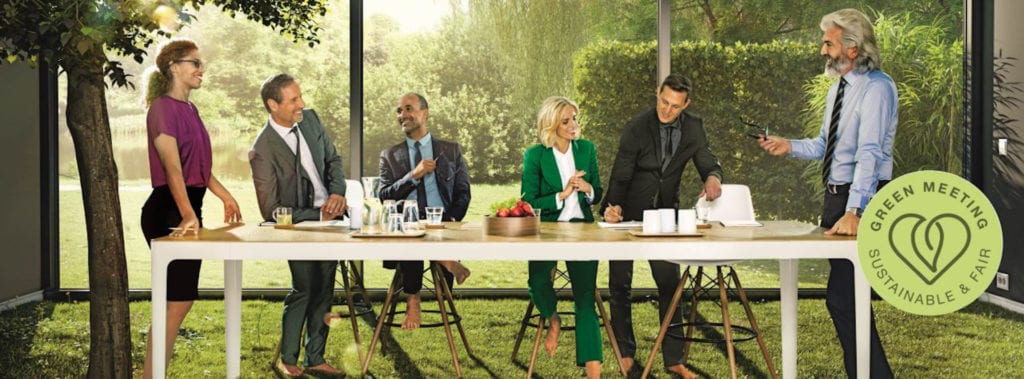
The trend for events globally over the past few years have been on sustainability. Organisers around the world are starting to realise how much carbon footprint they are leaving behind every three-day convention – from plastic cups, event dossiers to disposable name tags. According to a research by IndustryExpo organisers, a single three-day conference with 800 attendees leaves a footprint of 455 tonnes of CO2 equivalent. That is a significant amount, and plays a direct role in global warming through the greenhouse effect. It’s no wonder the need to minimise our impact on the environment should be a priority. The most unlikely of drivers have come in the form of a global pandemic.
To understand how virtual events are saving the planet, we need to first know what we mean by carbon footprints. Carbon footprint is the indication used to describe the “total impact that an event has on the climate concerning the emissions of greenhouse gases that are released into the atmosphere.” For companies to reduce their carbon footprint, they need to radically change the mentality of their attendees and organisers. Here are some ways virtual events are saving the planet.

Reduce Travel
According to several studies, 145 kg of CO2 are emitted over long journeys. The biggest culprit of carbon dioxide emissions is undoubtedly transport for global delegates to reach the cities. Virtual meetings and conferences have made it possible to connect many people at the same time, regardless of geographical location. Many sophisticated platforms allow businesses to engage and educate the event-goers through live webinars and panel discussions too. Overall, virtual events eliminates travel and reduce the tons of wastes that are being generated in large conferences. More importantly, they also improve access to the content, since a wider audience can consume the content and programs without flying halfway around the world.

Reduce Energy Consumption
In live events, one of the biggest logistical challenge is finding the perfect location. In recent years, that struggle has only gotten tougher, as organisers zoom into certified “green” places for their conferences. If your environment is not eco-friendly, you could end up consuming a lot of electricity and water. The waste you generate could also fall under the radar of recycling efforts. For venues who want to be considered sustainable, it takes a considerable investment as well, in critical aspects such as energy efficiency, water conservation or building recycling facilities. In a virtual event, however, this responsibility gets distributed across all attendees and delegates. There is no public resource to be consumed, and you can be sure that attendees are more conscious about their energy consumption and waste disposal at home than in a serviced facility.
Reduce Plastic
According to estimates by scientists, there will be more plastic in the sea than fish by 2050. This is because about 90% of plastic packaging worldwide is not recycled. It is even more damning that 13% of plastic in landfills across the UK comes from the events sector. Plastic utensils, plates, cups and even door gifts like pen are huge contributors to this worrying statistic. With virtual events, you eliminate the need for all these. Instead of sending physical products in bags that will be chucked aside, you can deliver virtual gift bags and catalogues instead, reducing printed waste entirely. I highly doubt that anyone will be eating out of disposable plastic plates at home as well, so that’s a big plus for virtual events.
In the past couple of years, events have gotten more expensive, and sustainability has been a direct contributor to that. Going green comes at a high cost, which is why organisers have to accept a tradeoff. Virtual events help lower the cost of events, removing wastes and reducing energy consumption. It is a win-win solution, and one you should consider for your next event.

